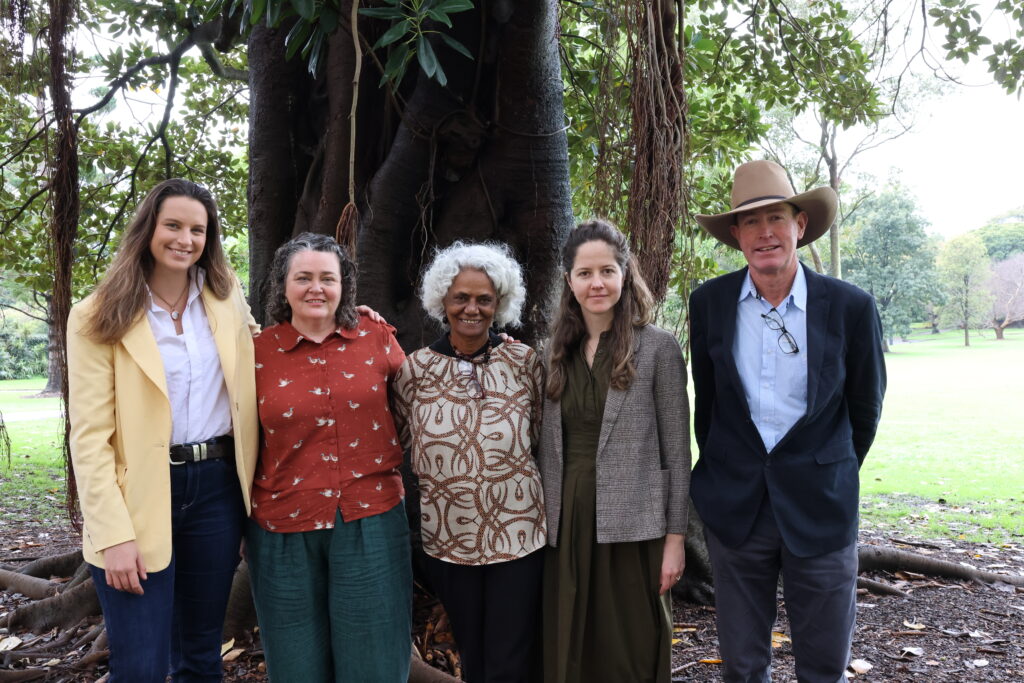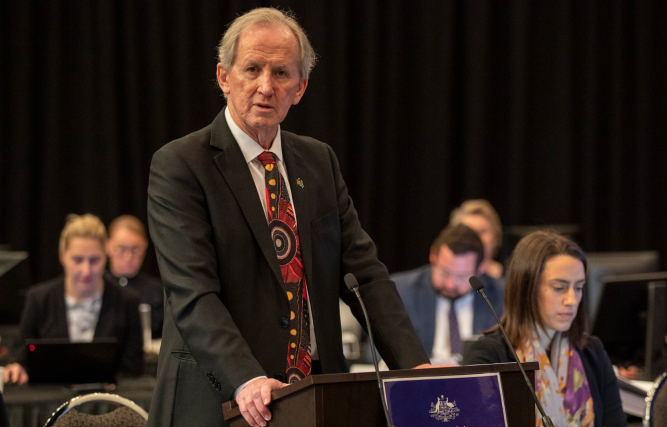The Nature Conservation Council of New South Wales (NCC), the state’s leading environmental advocacy organisation, accompanied a delegation of people from the Northern Murray-Darling Basin to NSW Parliament on August 15 to advocate for the collapsing ecosystem of the Darling/Baaka.

The group called on the government to implement the recommendations of the recent Connectivity Report in full.
“The NSW Connectivity Expert Panel final report is impressive work, it untangles layers of complexity and gives us a blueprint for getting enough water in the Darling/Baaka so it can survive,” said NCC Water Campaigner Mel Gray.
“We are coming to NSW Parliament today to tell the government that too much water is being taken from the tributary rivers that feed the Darling/Baaka.
“The Baaka is dying – it has lost its heartbeat. We have seen fish die in the millions, waterbird numbers have plummeted, communities have run out of water and freshwater mussels have disappeared from the Baaka.
“It’s quite simple: the rivers need more water. And this Connectivity Report gives us a roadmap for securing it.
“The time for excuses is over – the Baaka needs government action to bring it back from the brink.”
Gamilaraay Traditional Owner, Polly Cutmore said: “I believe the Connectivity Report is a big step in the right direction. At the moment, there isn’t enough flow coming down the river during dry times to keep the river alive.
“When I was young, it was never like this. Even in dry times, it was a wide river and there was always flow.
“As a child, I remember we had to cross the river a lot to get to the shops and to town – I remember crossing the river with my shoes off. It was only up my ankles at times, but it always flowed.
“The report advocates for an increase in base flow to the system – this is the bare minimum that the river needs to stay alive during drought. If this doesn’t happen, the river will continue to die.”
Fifth Generation farmer and rural advocate from Menindee, Kate McBride said: “My partner and I are the last station on the Darling/Baaka before the Menindee Lakes and as a result we’ve seen the devastating impact over-extraction has had on the Northern Basin.
“The dry rivers, algal blooms and fish kills during both droughts and floods are our river telling us it is sick and we must listen before we do even more irreversible damage.
“Report after report have told us the same information and now is the time for Government action.
“All this report is really asking for is to allow communities downstream to have the first drink before we allow mass irrigation at the top of the catchment. It’s common sense and I think most Australians would be alarmed it’s not currently the case.
“For too long, over extraction has been allowed to occur at the top of the catchment – it’s time we start looking after communities downstream.
“We will never be able to restore our rivers to their original state, but restoring connectivity is a big step towards healthy rivers.”
Macquarie Marshes grazier Garry Hall said: “After decades of water management taking our rivers and wetlands backwards, we’ve got a lot of ground to make up if we’re going to be ready for the impacts of climate change – which are already here. This report is a good start, but even more needs to be done.
“Marsh landholders overwhelmingly support the full recommendations of the connectivity report, and it must be acknowledged that it is the bare minimum of what inland rivers need.”


